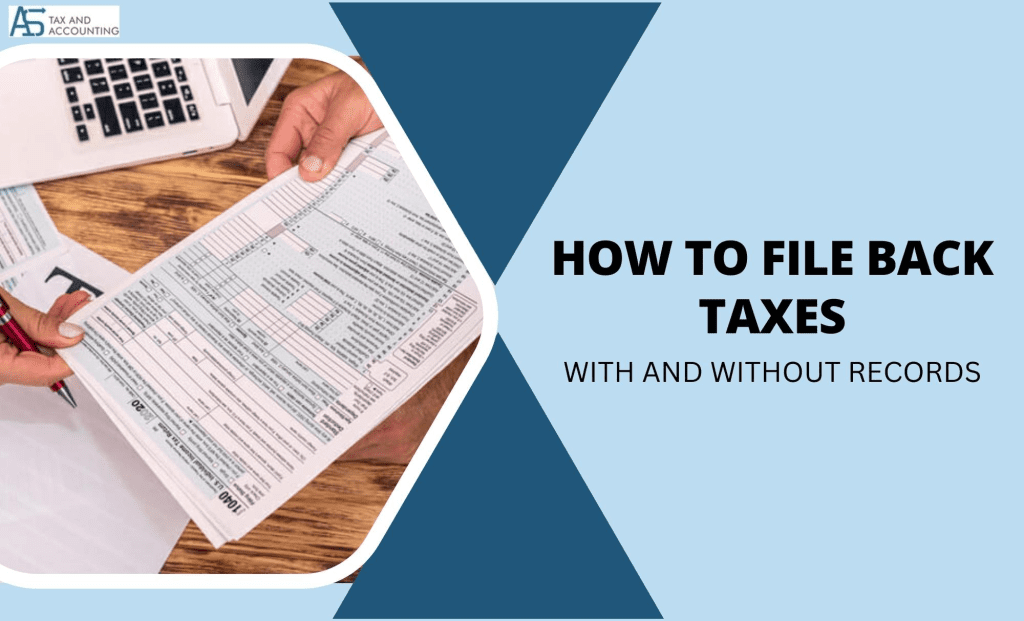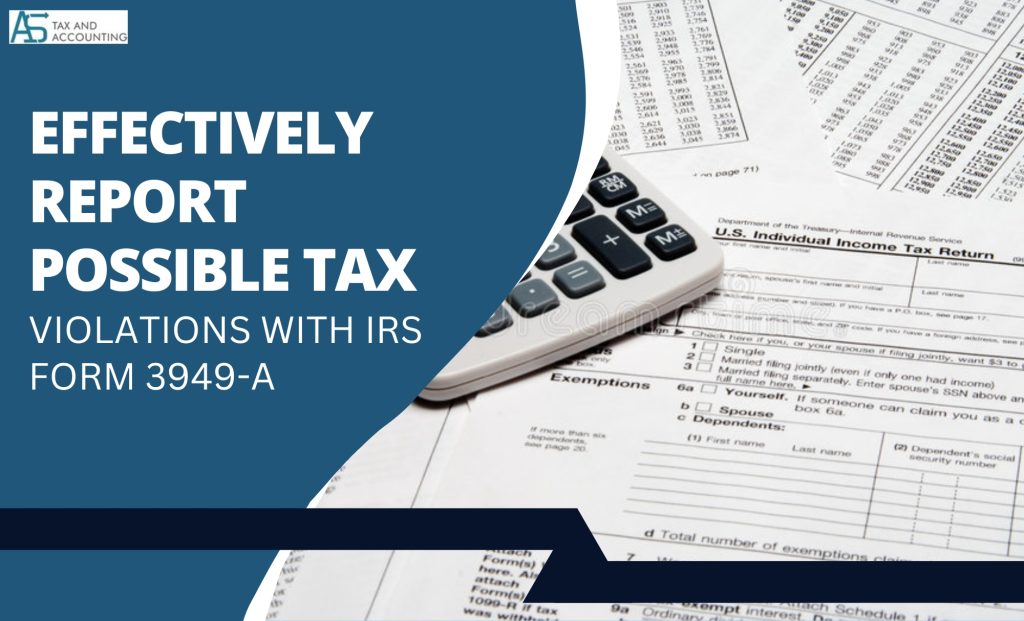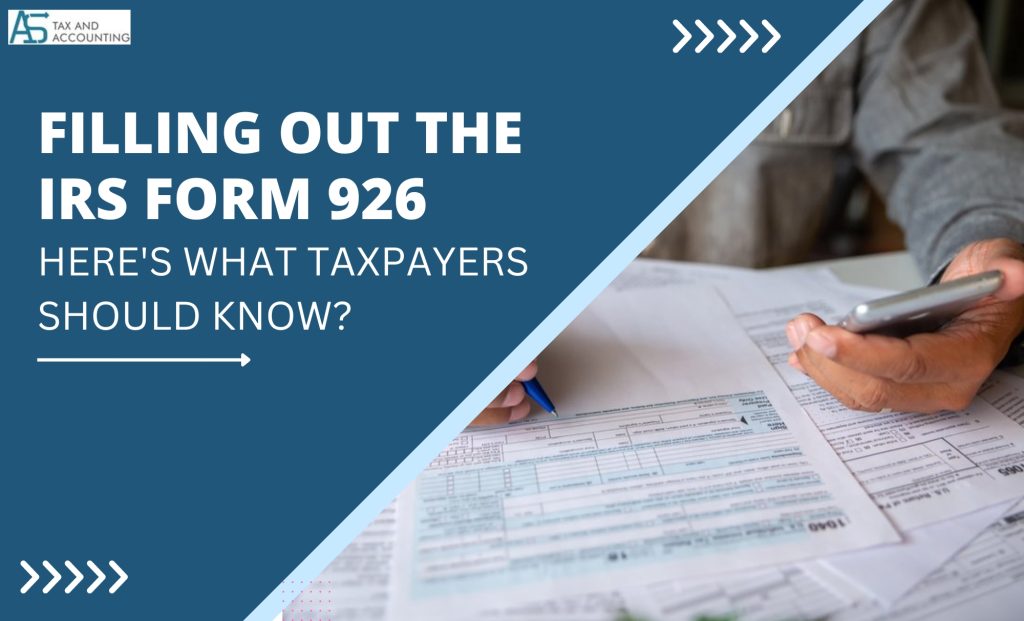The majority of taxpayers must submit an annual tax return. The IRS tracks taxpayers who are obligated to file returns but fail to do so. That could lead to severe repercussions and growing issues. The IRS has the authority to impose steep penalties and withhold your refund if you have unpaid taxes. You should still file back taxes even if you are unable to make a payment. It’s always preferable to file your return on time if you can, regardless of the circumstances surrounding your tax filing delay. In addition to making your life simpler and ensuring fair evaluation of your taxes, doing this will also help you to avoid penalties.
How to File Back Taxes?
Don’t worry if you’re unsure of how to file back taxes. It’s not as difficult as it seems. With a few significant exceptions, filing a return that is past its due date is almost identical to file one that is timely. Just adhere to the directions below.
Gather All Documents Necessary to File Old Taxes
- Start by asking the IRS for a transcript of your earnings. You can identify the Forms W-2 and 1099 you require to complete your return with the assistance of these transcripts.
- Compile information on self-employment, investments, and any other sources of income that have not yet been reported to the IRS.
- Check your situation for credits and deductions.
- Additionally, you’ll need to have all the relevant paperwork on hand if you’re claiming specific tax deductions or credits, such as receipts for medical bills or mortgage interest.
- Determine whether any special processing for your late-filed return is necessary.
- If you have numerous past-due taxes to file, the IRS typically mandates that you file returns for the previous six years in addition to the current year
- If necessary, request an extension from the IRS to file the past tax return in order to prevent any enforcement actions.
Fill out the Form and Submit It
- Download tax forms for the year you need to file by visiting the IRS website. It’s important to use the right form because they can change from year to year. So if you are filing a 2022 tax return make sure to choose the right forms.
- File prior year taxes properly. To ensure that you included all of your income as it was reported to the IRS, it is advisable to double-check your return against the IRS transcripts.
- If necessary, include a request for penalty relief with the return. You may be eligible for penalty relief on any failure to file and failure to pay penalties.
- You might be able to complete the paperwork using an online tax preparation service, but you won’t be able to e-file your back tax return. The forms must be printed out and sent to the address specified in the 1040 instructions for the tax year you are filing. A professional tax preparer can offer advice if you’re unclear about what to do.
Keep an Eye on Actions Related To Compliance And Return Processing
- To ensure that the IRS processed your return, periodically obtain your account transcripts or get in touch with the relevant IRS division.
- Follow up to make sure the IRS concluded the case with no remaining issues.
How to File Old Taxes Without W2 or 1099?
You can still submit taxes even if you don’t have a W-2 or 1099.
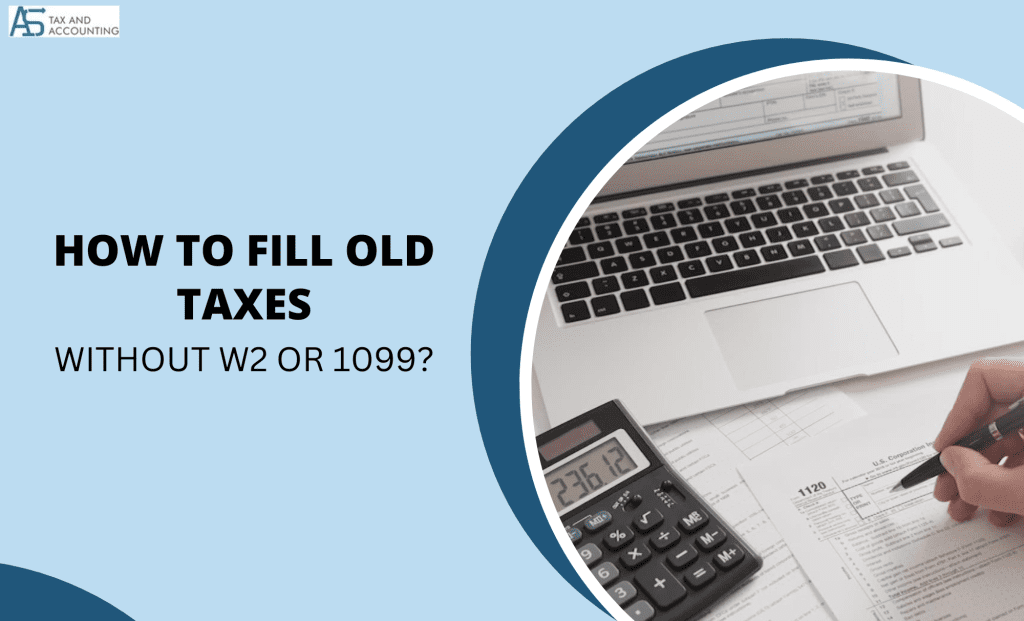
Normally, if you are working and need to file a tax return, your employer must give you a Form W-2 or Form 1099. You can contact your employer for a replica of this paperwork if you didn’t receive them or lost them. However, you can still file back taxes even if you can’t get access to a copy of your W-2 or 1099 by using Form 4852, “Substitute for Form W-2, Wage and Tax Statement.” On this form, details regarding your payment and any taxes deducted are requested.
You might find it helpful to have the following items on hand while completing your Form 4852.
- A pay slip, preferably the most recent one you received for the tax year you are submitting. It contains all the information required to complete Form 4852, including the year-to-date amounts, which makes it useful.
- Another is a W-2 from the previous year if your most recent W-2 is unavailable. You might be allowed to use it to complete some elements of Form 4852 if you worked for the same company and can attest that your compensation and deductions were the same.
Advantages of Filing Past Tax Returns
Reduce Fines and Interest
If you don’t submit a return by the timeframe or pay any taxes you owe, the IRS may fine you. The penalty for failing to file is greater than the penalty for failing to pay. Moreover, there will be interest on any outstanding tax balance. The amount of interest and penalties you incur for ignoring the deadline may be reduced if you file your back taxes and pay any money you owe.
Avoid Substitute for Return (SFR)
While the IRS receives copies of your 1099s and W-2s that explain your income, there isn’t much information available about your deductions. So when you fail to file tax returns, the IRS can compile an SFR on your part and issue you a wrong bill for the owing taxes.
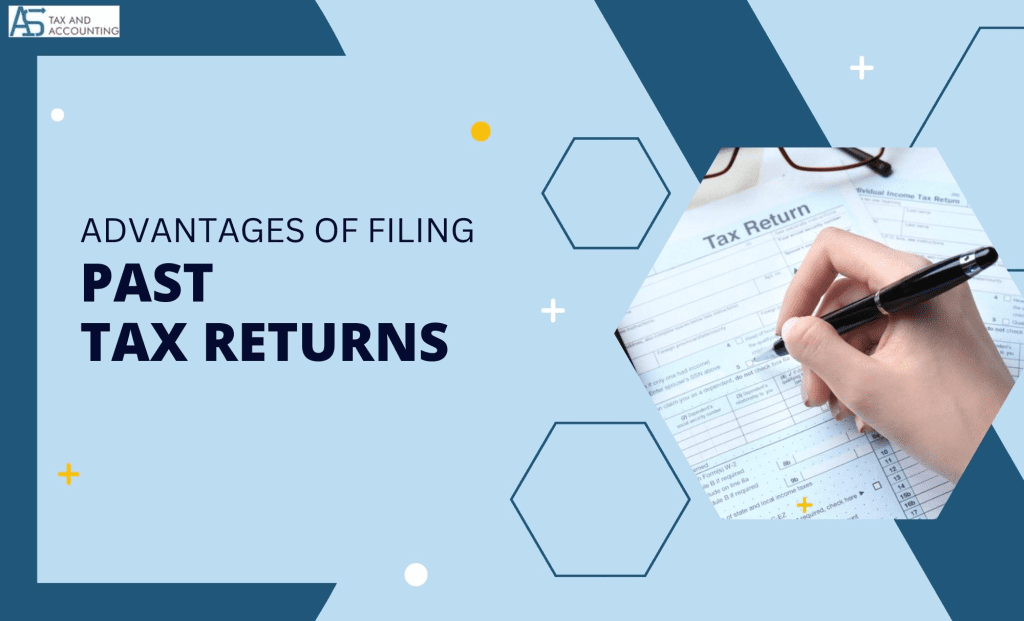
Prevent a Potential Credit Hurdle
Lenders may request copies of your filed tax returns in order to determine your eligibility for financing. Your loan application may not be processed right away if you don’t file a return for the year that you were supposed to.
Prevent Yourself from IRS Collection Actions
The IRS has the authority to seize your salary, bank account, your home, or other property and even revoke your passport if you fail to file a tax return and pay the tax you owe.
Obtain a Tax Refund
You typically have three years from the initial due date of the tax return to file a return and get a refund. Thus, if you fail to file for the previous year’s taxes, the money the IRS owes you in the form of a refund becomes the property of the US Treasury. It is a common reason for tax refund delays.
Frequently Asked Questions
The IRS can take action if you don’t submit a tax return for a year. You will either receive a notice or a bill from the agency. Alternatively, it can prepare a return on your behalf without granting you any tax advantages for which you qualify as it has all information about your income sources.
Back taxes are unpaid federal or state tax obligations from a previous year. Any business or individual who fails to file the previous year’s taxes owes back taxes to the IRS. The deadline for filing federal income tax returns for the tax year 2021 was April 15.
The IRS usually asks citizens to file their tax returns for the previous six years including the current year. However, the IRS can even look back further than six years.
You will need the following forms to file pending taxes.
● Form W-2 – serves as a wage and tax statement.
● Forms 1099-MISC or 1099-NEC for contract work.
● Form 1099-R for retirement account distributions.
● Form 1099-G for earned unemployment benefits.
● Form 1098-T if you paid tuition charges.
● Forms 1099-INT and 1099-DIV if you had interest income or dividends.
● Form SSA-1099 for Social Security benefits.
● Records demonstrating your eligibility for specific deductions and credits.
● Form 1098 if you received mortgage interest of more than $600.
- Author Details
- Latest Posts


